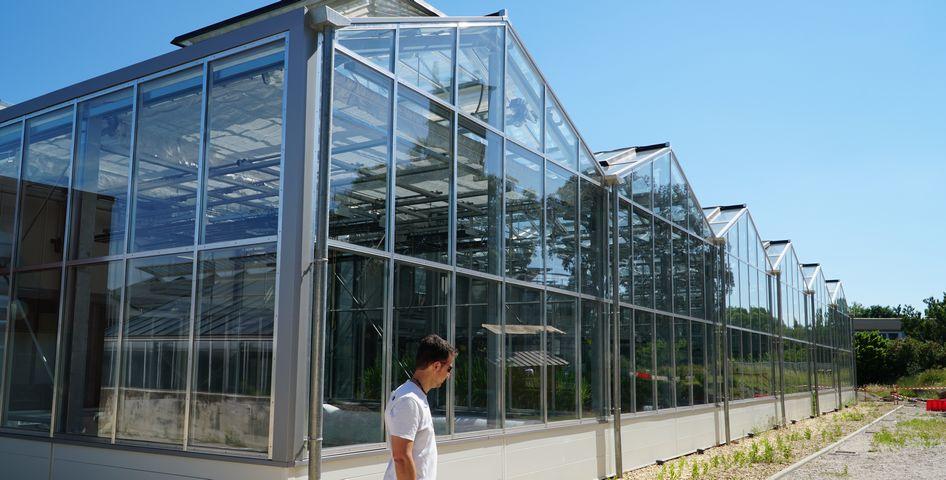- Home
- Work with us
- Open science
- CIRAD open infrastructures
- Abiophen and experimental greenhouses
Abiophen and plant growing and experimentation facilities

CIRAD's Abiophen greenhouses in Montpellier © V. Bonneaud, CIRAD
Aims
- To acclimatize, propagate, and cross transgenic lines to produce genetic material for our experiments
- To phenotype mutants with various agronomic characters affected, such as root architecture and response to abiotic stress, under a range of conditions. Phenotyping is conducted in the greenhouse or in phytotrons such as the rhizoscope
- To test new cropping systems, optimized in terms of rice growth and less energy- and commodity-intensive
- To preserve and promote crop agro-biodiversity
- To understand how plants develop and adapt, how product quality is elaborated, and the underlying genetic bases.
Crops
Citrus, banana, cocoa, coffee, sugarcane, cotton, guayule, rubber, yam, millet, oil palm, apple, rice, sorghum and cassava.
Expertise, tools and resources
- Maintenance and propagation of collections linked with biological resource centres;
- Crossing;
- Establishment of collections and production of progenies for genotyping and sequencing;
- Acclimatizing, growing and propagating plants produced by in vitro culture, including somatic hybrids;
- Acclimatizing and growing transgenic plants for gene functional analysis;
- Screening conventional and transgenic plant material for abiotic stress tolerance.
Equipment, installations
- 880 m2 of containment greenhouses (S2)
- 1540 m2 of conventional greenhouses
- 9 phytotrons
- 12 growth chambers
CIRAD recently equipped itself with a high-tech ecophysiology greenhouse. Abiophen has six glass compartments and four growth chambers (phytotrons) in which climate parameters can be fully controlled.
This advanced infrastructure will serve to study how plants react to future climate conditions.
RESEM, Montpellier experimental greenhouse network
The Montpellier agro-environment platform is one of the leading platforms in the world in terms of staff numbers and scientific output. It has a total of almost 10 000 m² of research greenhouses, making it a major facility. It is run by the Montpellier experimental greenhouse network, whose founding members are CIRAD, CNRS, INRAE, IRD, Montpellier SupAgro and the University of Montpellier.
More info on the RESEM website
























